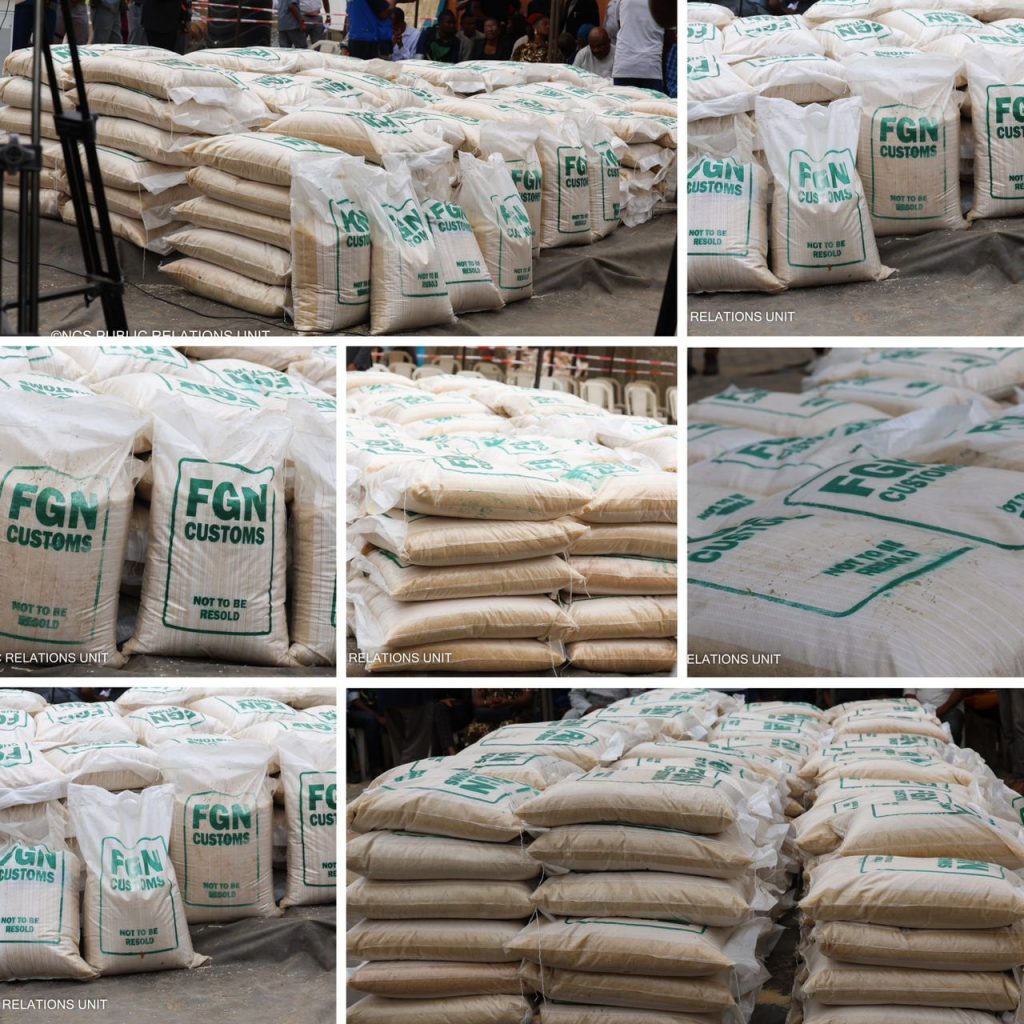Recently, reports emerged concerning the sale of seized bags of rice by the Nigeria Customs Service officials in Lagos State at a significantly reduced price, a move purportedly aimed at aiding citizens during challenging economic times. While the intention behind such initiatives is commendable, the lack of transparency and accountability raises serious concerns about the efficacy and fairness of these social welfare programs.
The sale of seized rice, priced at a mere N10,000 per 25kg, has sparked controversy and tragic consequences, with reports indicating that seven individuals lost their lives in the scramble to obtain this subsidised staple. This tragic outcome underscores the urgent need for greater oversight and regulation in the distribution of essential commodities intended for public welfare.
While it is crucial to assist those facing economic hardship, it is equally imperative that such assistance be administered systematically and equitably. Questions arise regarding the criteria used to determine eligibility for these subsidised goods. How can we be certain that those in genuine need are the ones benefiting from these programmes? What safeguards are in place to prevent abuse and exploitation of these resources?
One troubling possibility is the diversion of these subsidised goods for personal gain by those entrusted with their distribution. There exists a real risk that customs officials, or even individuals within the community, may seize the opportunity to profit from the sale of these goods, either by reselling them at inflated prices in the market or by diverting them to commercial vendors.
To address these concerns, urgent action must be taken to ensure transparency and accountability in the administration of social welfare programmes. This includes implementing stringent oversight mechanisms, such as regular audits and independent monitoring, to track the flow of goods from seizure to distribution. Additionally, clear guidelines and eligibility criteria must be established to ensure that aid reaches those most in need.
Furthermore, community engagement and public awareness campaigns are essential to foster trust and transparency in these initiatives. Citizens must be empowered to report any irregularities or instances of abuse, confident that their concerns will be heard and addressed promptly.
While social welfare programmes play a vital role in alleviating poverty and hardship, they must be implemented with integrity and fairness. The recent events surrounding the sale of seized rice in Lagos State serve as a stark reminder of the urgent need for greater accountability and transparency in the administration of such programmes. Only through concerted efforts to uphold these principles can we ensure that aid reaches those who need it most, without exploitation or injustice.
